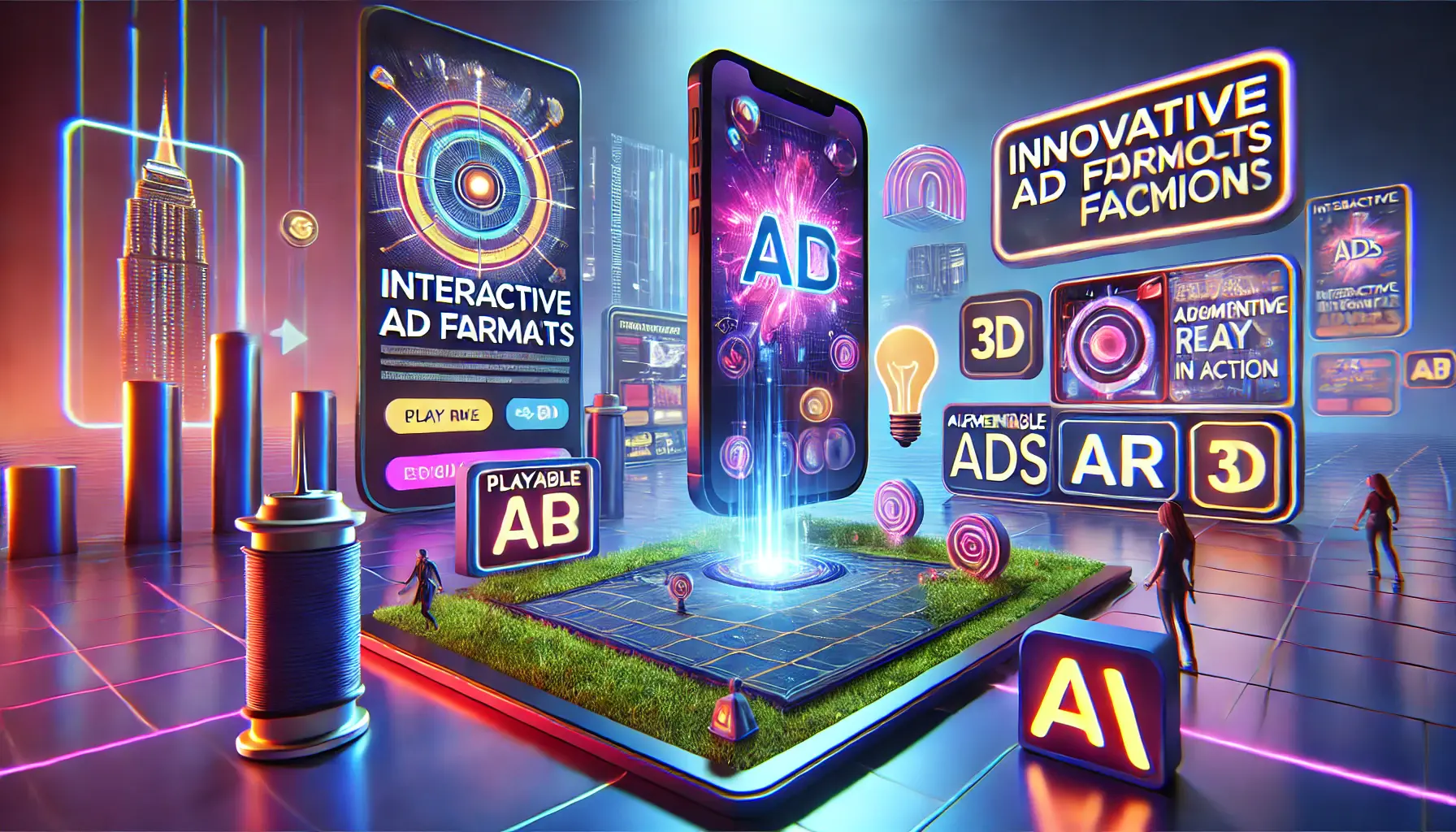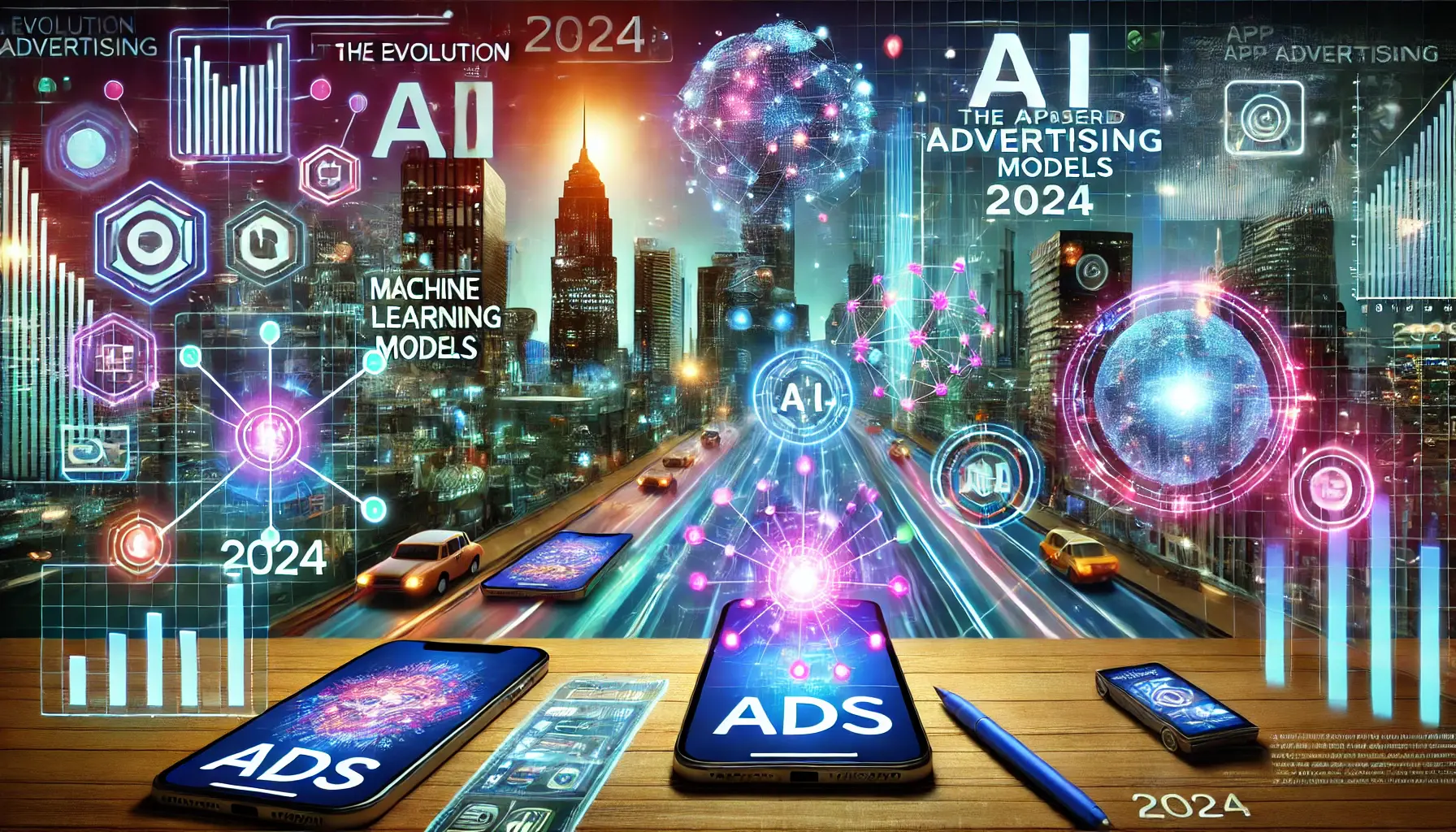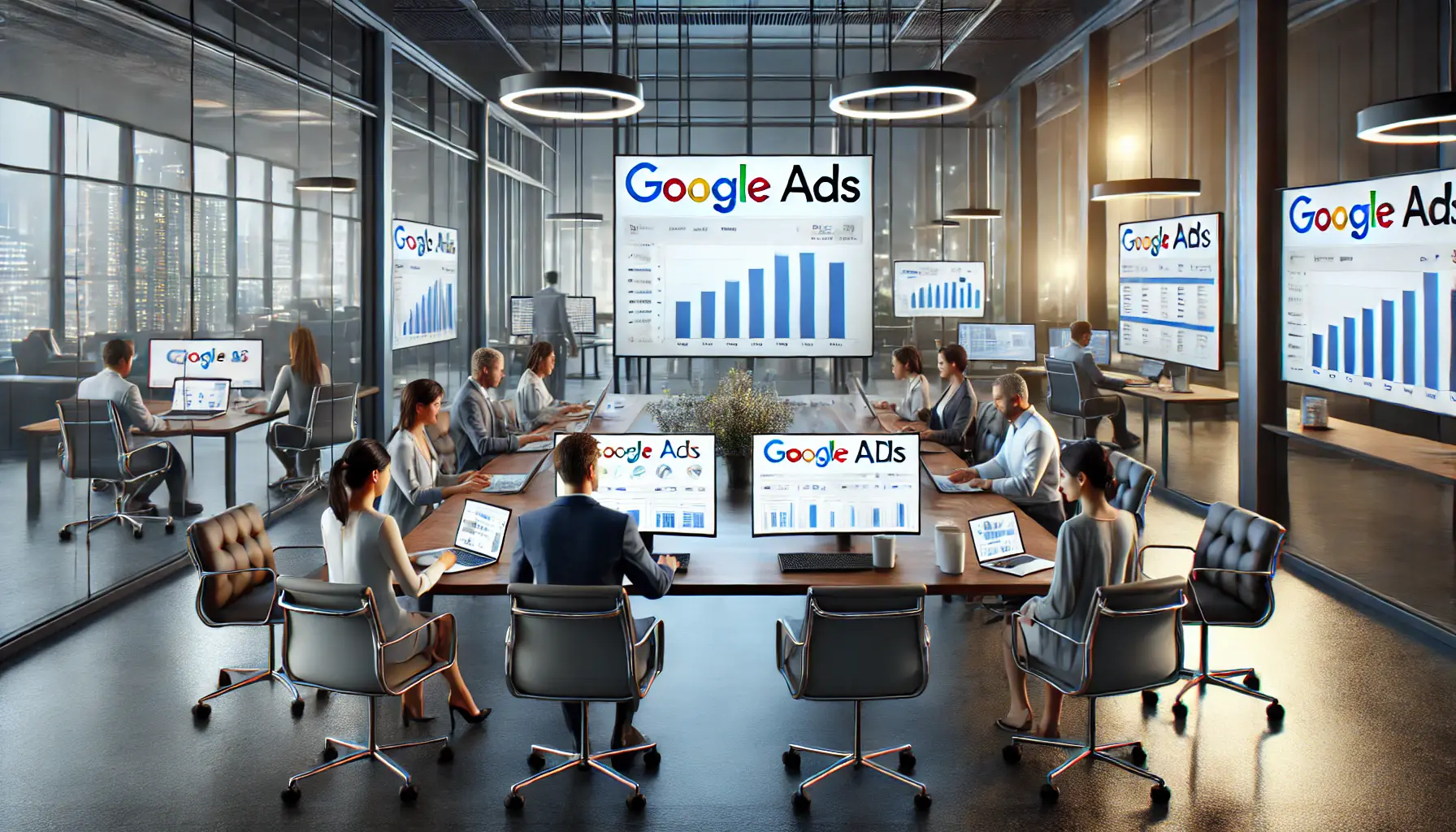In the ever-changing landscape of app advertising, staying ahead of trends and understanding market evolution is critical for success.
The digital marketing space keeps evolving rapidly, especially as technology continues to shape user experiences.
Innovation and adaptability will separate the leaders from the laggards for advertisers in 2024.
This article explores the evolving market in app ads in 2024, focusing on strategies and trends that will determine the future of the industry.
Our first focus will be on the emerging trends in app advertising and how these set the stage for change in this industry.
Let’s uncover the exciting possibilities that lie ahead and how you can leverage them to your advantage.
- Emerging Trends in App Advertising for 2024
- Impact of Privacy Regulations on App Advertising
- Innovative Ad Formats Powering Up User Engagement
- Leveraging Social Media Platforms for App Advertising
- Future Strategies for Success in App Advertising
- Summarizing Market Evolution in App Advertising for 2024
- Frequently Asked Questions on Market Evolution in App Ads for 2024
Emerging Trends in App Advertising for 2024
The world of app advertising is witnessing a paradigmA typical example or pattern of something; a model. shift, driven by advancements in technology and changing user expectations.
To remain competitive, advertisers must stay informed about the latest trends and integrate them into their strategies.
Below are the key trends shaping the app advertising landscape in 2024.

Illustrating the integration of AI and machine learning in optimizing digital ad strategies.
Integration of AI and Machine Learning in Ad Strategies
Artificial Intelligence (AI) and Machine Learning (ML) are no longer futuristic concepts; they are integral to modern advertising.
These technologies allow advertisers to analyze user behavior, predict trends, and deliver highly personalized content.
With AI, you can create campaigns that connect with your audience on a deeper level, ensuring better engagement and conversion rates.
For example, AI algorithms can analyze vast amounts of data to identify the best time to show an ad for maximum visibility and relevance.
Machine learning models continuously optimize ad delivery, learning from user interactions and improving outcomes over time.
- Enhanced targeting: AI enables precise audience segmentation, ensuring ads reach the right people at the right time.
- Improved ROI: By optimizing ad spend and reducing wastage, AI helps maximize return on investment.
- Dynamic ad creation: Machine learning generates tailored ad creatives that adapt to user preferences and behaviors.

Highlighting the shift towards personalized user experiences in digital advertising.
Shift Towards Personalized User Experiences
Today’s users expect personalized interactions that cater to their unique needs and preferences.
This makes app advertisers respond by ensuring ads are tailored to individual journeys.
Personalized ads not only enhance user satisfaction but also increase the likelihood of conversions.
Personalization can occur through data-driven insights.
For instance, using location data, purchase history, or in-app behavior, you can deliver ads that feel relevant and timely.
- Relevant content: Personalized ads speak directly to user interests, making them more engaging.
- Higher retention rates: Tailored experiences create stronger brand connections, fostering user loyalty.
- Seamless integration: Personalized ads fit naturally into the user’s app experience, avoiding disruption.

Illustrating the growth of programmatic advertising in mobile apps through dynamic, real-time ad placements.
Growth of Programmatic Advertising in Mobile Apps
Programmatic advertising continues to revolutionize the digital marketing world.
By automating the buying and selling of ad space, programmatic advertisingThe automated buying and selling of digital ad inventory in real-time using software. streamlines processes and increases efficiency.
In the mobile app space, this trend is expected to gain even more traction in 2024.
Using programmatic platforms, advertisers gain access to real-time data, dynamically adjust bids, and ensure their ads are displayed in the most impactful placements.
This automation reduces manual intervention, allowing you to focus on strategy and creativity.
- Efficiency: Programmatic ads reduce the time spent on manual processes, accelerating campaign execution.
- Better targeting: Advanced algorithms analyze user data to deliver ads to the most relevant audiences.
- Cost-effective: Automated bidding ensures you pay the right price for ad placements, optimizing budget utilization.
Staying updated on emerging trends ensures competitive advantage in the rapidly evolving app advertising landscape.
- AI and ML enhance precision and efficiency.
- Personalized user experiences boost engagement.
- Programmatic advertising streamlines ad placements.

Depicting the impact of privacy regulations on app advertising, emphasizing security and compliance.
Impact of Privacy Regulations on App Advertising
In recent years, privacy regulations have significantly reshaped the app advertising landscape.
As we move into 2024, understanding and navigating these regulations is crucial for advertisers aiming to maintain compliance and effectiveness in their campaigns.

Visualizing the navigation of data privacy laws in advertising, focusing on security, regulation, and compliance.
Navigating Data Privacy Laws in Advertising
With the enactment of laws such as the General Data Protection RegulationA data protection law in the European Union that sets guidelines for the collection and processing of personal information. (GDPR) in the European Union and the California Consumer Privacy ActA privacy law in California granting consumers rights over their personal data and how businesses use it. (CCPA) in the United States, advertisers face stricter guidelines on data collection and usage.
These regulations require transparency and user consent, forcing advertisers to rethink their data strategies.
For example, the European Commission is investigating a secret advertising deal between Google and Meta Platforms that allegedly targeted teenagers, potentially violating data privacy laws.
This scrutiny highlights the importance of adhering to privacy regulations to avoid legal repercussions.
- Transparency: Clearly inform users about data collection practices and obtain explicit consent.
- Data minimization: Collect only the data necessary for specific advertising purposes.
- User control: Provide users with options to manage their data preferences easily.

Illustrating the shift towards contextual targeting in advertising, focusing on content relevance and privacy.
Adoption of Contextual Targeting Over Behavioral Targeting
Traditional behavioral targeting, which relies on tracking user behavior across apps and websites, is increasingly restricted due to privacy laws.
As a result, advertisers are turning to contextual targetingA method of advertising where ads are displayed based on the content of the page rather than user behavior., which delivers ads based on the content a user is currently engaging with, without the need for personal data.
This shift not only respects emerging privacy regulations but also aligns with user preferences, creating a better ad experience.
For example, displaying ads for sports equipment on a sports news app leverages contextual relevance without infringing on user privacy.
- Compliance: Contextual targeting adheres to privacy laws by avoiding personal data usage.
- Relevance: Ads are aligned with the user’s immediate content, enhancing engagement.
- Trust: Users feel their privacy is respected, fostering trust in the brand.

Illustrating the importance of transparent data practices in building user trust in digital advertising.
Building User Trust Through Transparent Data Practices
In the current privacy-conscious environment, building and maintaining user trust is paramount.
Transparency in data practices is essential to achieve this goal.
For instance, Meta Platforms plans to replace highly personalized ads with contextual ads on Instagram and Facebook for European users.
These ads will be based on the content being browsed at the moment.
This initiative complies with EU regulations and demonstrates a commitment to user privacy.
- Clear communication: Describe how data is collected and used in plain language.
- Consent management: Provide intuitive tools for users to manage their data preferences.
- Regular updates: Keep users informed about changes in data practices and policies.
By adopting these strategies, advertisers can navigate the evolving landscape of privacy regulations, ensuring their app advertising efforts remain effective and compliant in 2024.
Privacy regulations like GDPR and CCPA demand compliance to maintain user trust and avoid legal challenges.
- Adopt contextual targeting over behavioral tracking.
- Ensure transparency in data practices.
- Implement effective consent management tools.

Illustrating innovative ad formats like AR and interactive ads, designed to enhance user engagement.
Innovative Ad Formats Powering Up User Engagement
Throughout 2024, innovative ad formats have emerged to drive user engagement in app advertising.
For a variety of reasons, advertisers need to stay updated on these developments to effectively connect with their audiences.

Depicting the rise of interactive and immersive ad experiences with VR and AR elements.
Rise of Interactive and Immersive Ad Experiences
Interactive ads are rapidly gaining popularity, offering users experiences that go beyond passive viewing.
Formats such as playable ads, where users can interact with a mini-version of a game or app, are becoming more widespread.
These ads not only entertain but also provide a hands-on preview, significantly boosting user engagement and conversion rates.
Additionally, immersive experiences leveraging augmented realityA technology that overlays digital elements on the real-world environment, enhancing user interaction. (AR) and virtual realityA simulated experience that can be similar to or completely different from the real world, often using immersive technology. (VR) technologies are transforming how users interact with ads.
For example, AR ads allow users to visualize products in their real-world environments, bridging the gap between digital and physical experiences.
- Enhanced engagement: Interactive ads encourage active user participation, leading to higher engagement rates.
- Memorable experiences: Immersive ads create lasting impressions, improving brand recall.
- Higher conversion rates: Providing interactive previews increases the likelihood of users downloading or purchasing the advertised app or product.

Showcasing the use of augmented reality in app advertisements with a user interacting with a 3D product model.
Utilizing Augmented Reality (AR) in App Advertisements
Augmented Reality is revolutionizing app advertising by offering users unique and engaging experiences.
AR ads let users interact with digital elements overlaid onto their real-world surroundings, creating a personalized and immersive experience.
For instance, a furniture retailer can use AR ads to let users visualize how a piece of furniture would look in their home.
This interactive approach not only engages users but also assists in their decision-making process.
- Personalization: AR ads offer tailored experiences, aligning with individual user preferences.
- Increased engagement: The interactive nature of AR ads captures user attention more effectively than traditional formats.
- Improved conversion rates: By providing a realistic preview, AR ads boost user confidence in their purchasing decisions.

Illustrating the effectiveness of video ads in capturing audience attention with vibrant and engaging content.
Effectiveness of Video Ads in Capturing Audience Attention
Video ads continue to dominate the app advertising space due to their dynamic and engaging nature.
Short-form videos, in particular, are effective at capturing user attention and conveying messages quickly and succinctly.
Platforms like TikTok and Instagram have popularized short-form video content, making it a critical component of advertising strategies.
Advertisers are leveraging this trend by creating compelling video ads that resonate with users’ interests and behaviors.
- High engagement: Video ads are more likely to be viewed and shared, increasing reach.
- Emotional connection: Videos can evoke emotions, fostering a deeper connection with the audience.
- Versatility: Video ads can be adapted across various platforms and formats, enhancing their effectiveness.
By embracing these innovative ad formats, advertisers can significantly enhance user engagement and drive better outcomes in their app advertising campaigns in 2024.
Interactive and immersive ad formats redefine user engagement, making campaigns more impactful.
- Playable ads offer hands-on previews.
- AR ads personalize experiences with real-world overlays.
- Video ads evoke emotions and drive conversions.

Illustrating the power of leveraging social media platforms for app advertising, with user engagement and dynamic visuals.
Leveraging Social Media Platforms for App Advertising
By 2024, social media platforms have become indispensable tools for app advertisers to reach and engage diverse audiences.
Effectively utilizing these platforms can significantly enhance the visibility and success of app advertising campaigns.

Illustrating the dominance of major social media platforms in advertising, showcasing their vast influence and reach.
Dominance of Major Social Media Platforms in Advertising
The global advertising industry is projected to surpass $1 trillion in revenue, with major platforms like Facebook, Instagram, TikTok, and YouTube capturing a substantial market share.
These platforms boast strong user bases and advanced targeting options, making them ideal for app advertisers.
For example, TikTok’s rapidly growing popularity has made it a focal point for advertisers targeting younger audiences.
Its short-form video content and algorithm-driven feed provide opportunities for creative and viral app advertisements.
- Extensive reach: Access to billions of active users worldwide.
- Advanced targeting: Ability to segment audiences based on demographics, interests, and behaviors.
- Engaging formats: Utilization of various ad formats, including stories, reels, and in-feed videos.

Depicting the emergence of new social media platforms and their advertising potential in the digital landscape.
Emergence of New Platforms and Their Advertising Potential
As established platforms dominate, new social media platforms are emerging, offering unique advertising opportunities.
For instance, Threads from Meta and Bluesky have started gaining popularity among users seeking alternatives to mainstream platforms.
These new platforms open opportunities for advertisers to reach niche audiences and test innovative ad formats.
However, understanding each platform’s culture and user behavior is crucial for effective advertising.
- Access to niche markets: Engage with specific user communities.
- Innovative ad formats: Explore new ways to present app advertisements.
- Early adoption benefits: Establish a presence before the platform becomes saturated.

Illustrating the integration of social commerce into app advertising strategies with e-commerce features in social platforms.
Integrating Social Commerce into App Advertising Strategies
Social commerce, the integration of e-commerce features within social media platforms, is transforming app advertising.
Apps like TikTok have introduced shopping features, enabling users to make purchases directly within the app.
For example, the success of TikTok ShopA feature within TikTok allowing users to buy products directly on the platform. during the holiday season, where it reached $100 million in U.S.
sales on Black Friday alone, showcases the potential of social commerceThe integration of e-commerce features into social media platforms to facilitate online shopping..
These features allow app advertisers to seamlessly drive more installs and in-app purchases.
- Seamless user experience: Facilitate in-app purchases without redirects.
- Increased conversion rates: Simplify the purchasing process to boost sales.
- Enhanced tracking: Monitor user journeys from ad engagement to purchase.
By leveraging established and emerging social media platforms strategically, app advertisers can achieve immense reach, recall, and desired outcomes in their campaigns for 2024.
Social media platforms provide vast opportunities for app advertisers to reach diverse audiences.
- Explore emerging platforms for niche targeting.
- Leverage advanced targeting on major platforms.
- Integrate social commerce to simplify user journeys.

Representing future strategies for success in app advertising, with AI and data analytics powering personalized advertising.
Future Strategies for Success in App Advertising
As the app advertising landscape continues to evolve, adopting forward-thinking strategies is essential for success.
Embracing emerging technologies and adapting to changing consumer behaviors will position advertisers to thrive in 2024 and beyond.

Illustrating the embrace of artificial intelligence and machine learning in advertising, optimizing and personalizing ads.
Embracing Artificial Intelligence and Machine Learning
Artificial Intelligence (AI) and Machine Learning (ML) are revolutionizing app advertising by enabling personalized user experiences and efficient campaign management.
AI-driven algorithms analyze user behavior to deliver tailored content, enhancing engagement and conversion rates.
- Predictive analytics: Utilizing AI to forecast user behavior and optimize ad targeting.
- Automated ad creation: Leveraging ML to generate dynamic ad creatives that resonate with specific audiences.
- Real-time optimization: Implementing AI to adjust campaigns on-the-fly for improved performance.

undefined
Integrating Cross-Platform Advertising Strategies
With users engaging across multiple devices and platforms, a cohesive cross-platform advertising strategy ensures consistent messaging and maximizes reach.
Synchronizing campaigns across mobile apps, social media, and web platforms enhances brand visibility and user engagement.
- Unified user profiles: Creating comprehensive profiles to track user interactions across platforms.
- Consistent messaging: Maintaining uniform brand messages to reinforce recognition and trust.
- Holistic analytics: Analyzing data from all platforms to gain insights into user behavior and campaign effectiveness.

Illustrating the prioritization of user privacy and data security in app advertising with strong privacy measures.
Prioritizing User Privacy and Data Security
In an era of heightened privacy concerns, prioritizing user data protection is paramount.
Adhering to regulations and implementing transparent data practices build user trust and ensure compliance.
- Data anonymization: Employing techniques to protect user identities while utilizing data for targeting.
- Consent management: Providing clear options for users to control their data preferences.
- Regular audits: Conducting assessments to ensure data security measures are effective and up-to-date.
By integrating these strategies, app advertisers can navigate the dynamic landscape of 2024, achieving sustained success and fostering meaningful user connections.
Adopting forward-thinking strategies ensures long-term success in the evolving app advertising ecosystem.
- Embrace AI and ML for predictive insights.
- Integrate cross-platform campaigns for consistency.
- Prioritize user privacy to build trust and compliance.

Illustrating the market evolution in app advertising for 2024, with advancements in AI, machine learning, and personalized targeting.
Summarizing Market Evolution in App Advertising for 2024
As we navigate the ever-evolving landscape of app advertising, 2024 presents unparalleled opportunities for growth and innovation.
Advertisers must stay proactive, embracing the trends, technologies, and strategies that define the market evolution in app ads.

Illustrating the key takeaways from emerging trends in app advertising, showcasing AI, machine learning, and innovative ad formats.
Key Takeaways from Emerging Trends
App advertising in 2024 is marked by a shift toward personalizationTailoring content or services to individual user preferences and behaviors., interactivity, and technological integration.
From AI-driven campaigns to immersive ad experiences, advertisers are leveraging cutting-edge tools to captivate their audiences.
- Personalization: Tailoring ads to individual user preferences enhances engagement and conversion rates.
- Interactivity: Formats like AR and playable ads create memorable user experiences.
- Efficiency: Automation through programmatic advertising streamlines processes and optimizes budgets.

undefined
The Role of Privacy and Compliance
Privacy regulations have reshaped the app advertising ecosystem.
Adopting privacy-first practices, such as contextual targeting and transparent data management, is no longer optional—it is essential for maintaining user trust and meeting compliance requirements.
- Contextual relevance: Aligning ads with current user content without relying on personal data.
- Transparency: Building trust by clearly communicating data practices and obtaining consent.
- Adaptability: Continuously refining strategies to align with evolving privacy laws.

Illustrating future strategies for success in app advertising, showcasing innovation and advanced technologies.
Future Strategies for Success
Looking ahead, success in app advertising requires a focus on holistic strategies.
Cross-platform approaches, AI and machine learning, and a focus on user-centric designs hold the key to sustained growth.
- Cross-platform integration: Ensuring uniformity in messaging across devices and platforms.
- Advanced analytics: Using data insights to refine targeting and optimize campaigns.
- Innovation: Leveraging new technologies and ad formats to stay ahead.
The market evolution in app ads reflects a dynamic interplay of innovation, regulation, and user expectations.
In this transformative time, being well-informed and agile will allow advertisers to unlock the full potential of their campaigns.
Understanding market evolution in app advertising helps advertisers stay proactive and innovative.
- Personalized and interactive ad formats are key trends.
- Privacy and compliance remain critical factors.
- Future strategies focus on technology integration and user-centric designs.

Illustrating the evolving market of app ads in 2024, highlighting key trends and technologies like AI and personalized targeting.
Your campaigns can be managed by an agency specialized in Google Ads, check out our service page.
Frequently Asked Questions on Market Evolution in App Ads for 2024
As the app advertising landscape evolves in 2024, several common questions arise regarding market trends and effective strategies.
In 2024, app advertising focuses on personalization, interactive ad formats, and leveraging AI and machine learning to enhance user engagement and optimize campaign performance.
Privacy regulations are prompting a shift towards contextual targeting and transparent data practices, ensuring compliance while maintaining user trust in app advertising campaigns.
AI drives predictive analytics, ad creation automation, and real-time optimization, empowering advertisers to serve personalized content and enhance campaign effectiveness within the dynamic app advertising marketplace.
Implementing cross-platform strategies helps create consistent messaging and better reach to engage users seamlessly across a variety of devices and platforms in the app advertising ecosystem.
Engaging and interactive ad formats such as interactive ads, augmented reality experiences, and short-form video ads are fast becoming popular for in-app advertising.
Prioritizing user privacy is essential.
Adhering to regulations and using transparent data practices builds trust and ensures compliance in app advertising efforts.
Programmatic advertising automates ad buying, providing real-time data access, dynamic bid adjustments, and efficient ad placements, enhancing the effectiveness of mobile app advertising campaigns.
Utilizing advanced analytics to track key performance indicators such as engagement rates, conversion rates, and return on investment helps assess and optimize the success of app advertising campaigns.
Advertisers encounter challenges like adapting to privacy regulations, technological advancements, and changing consumer behaviors, requiring continuous strategy refinement in the app advertising landscape.













